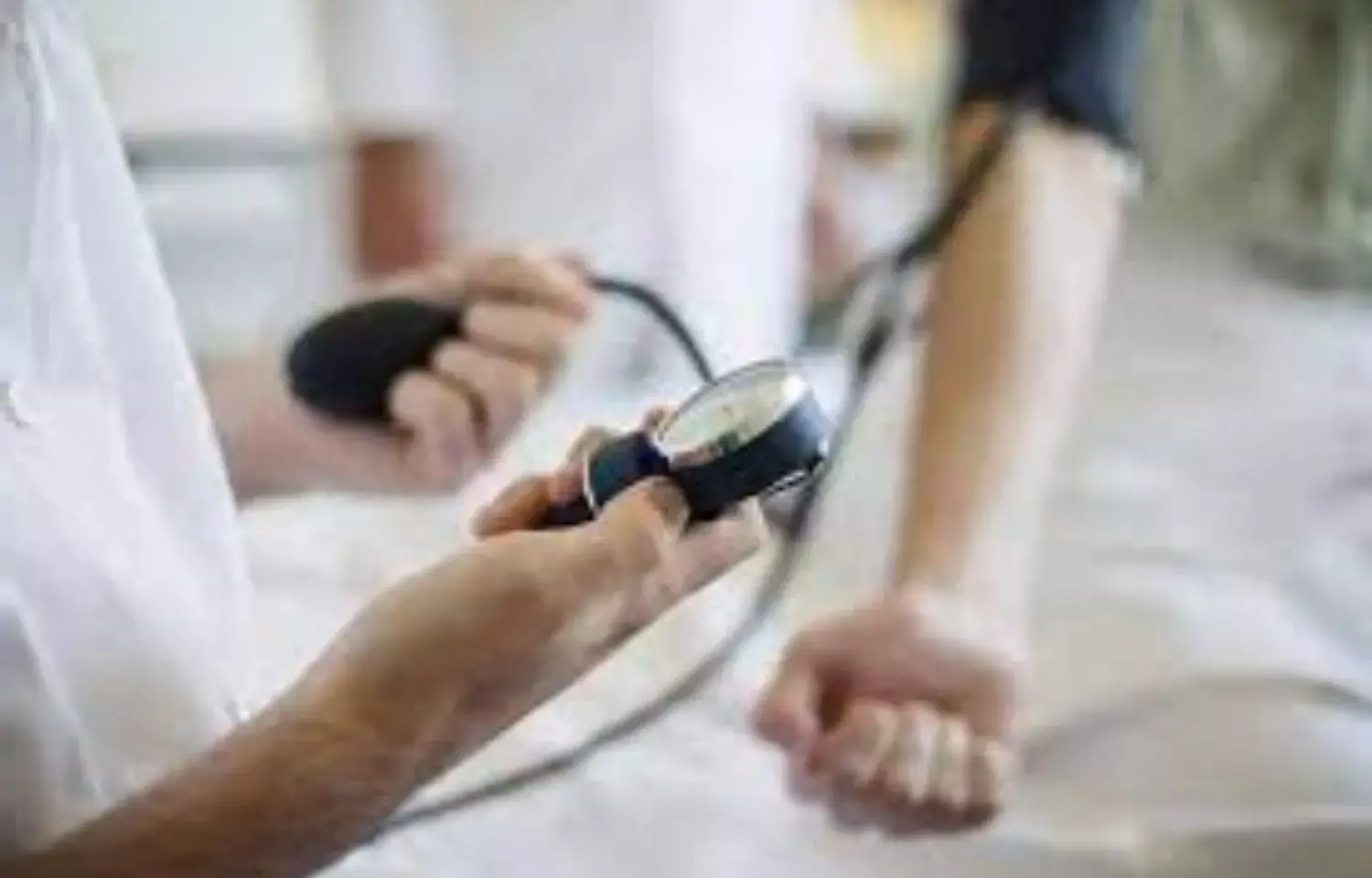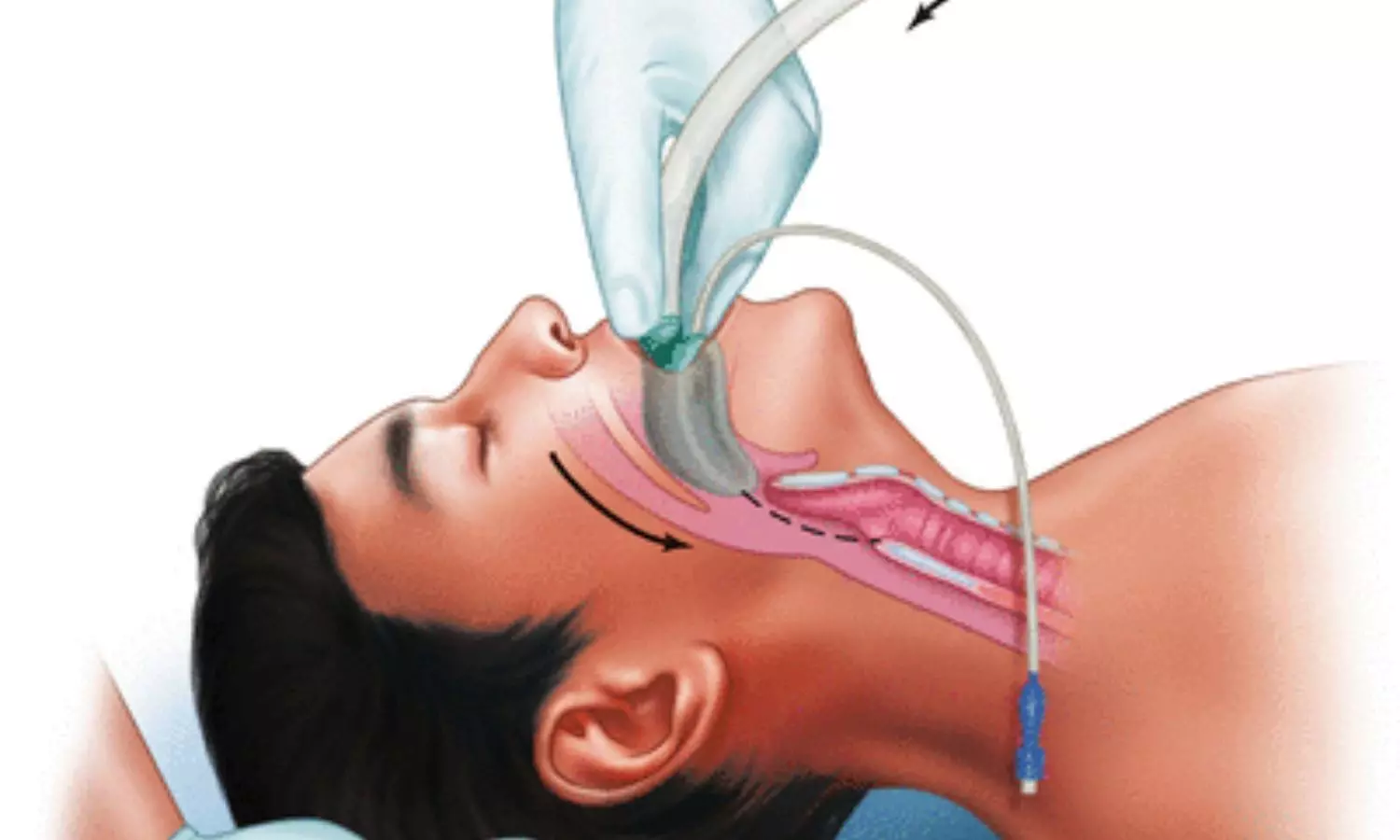- Home
- Medical news & Guidelines
- Anesthesiology
- Cardiology and CTVS
- Critical Care
- Dentistry
- Dermatology
- Diabetes and Endocrinology
- ENT
- Gastroenterology
- Medicine
- Nephrology
- Neurology
- Obstretics-Gynaecology
- Oncology
- Ophthalmology
- Orthopaedics
- Pediatrics-Neonatology
- Psychiatry
- Pulmonology
- Radiology
- Surgery
- Urology
- Laboratory Medicine
- Diet
- Nursing
- Paramedical
- Physiotherapy
- Health news
- Fact Check
- Bone Health Fact Check
- Brain Health Fact Check
- Cancer Related Fact Check
- Child Care Fact Check
- Dental and oral health fact check
- Diabetes and metabolic health fact check
- Diet and Nutrition Fact Check
- Eye and ENT Care Fact Check
- Fitness fact check
- Gut health fact check
- Heart health fact check
- Kidney health fact check
- Medical education fact check
- Men's health fact check
- Respiratory fact check
- Skin and hair care fact check
- Vaccine and Immunization fact check
- Women's health fact check
- AYUSH
- State News
- Andaman and Nicobar Islands
- Andhra Pradesh
- Arunachal Pradesh
- Assam
- Bihar
- Chandigarh
- Chattisgarh
- Dadra and Nagar Haveli
- Daman and Diu
- Delhi
- Goa
- Gujarat
- Haryana
- Himachal Pradesh
- Jammu & Kashmir
- Jharkhand
- Karnataka
- Kerala
- Ladakh
- Lakshadweep
- Madhya Pradesh
- Maharashtra
- Manipur
- Meghalaya
- Mizoram
- Nagaland
- Odisha
- Puducherry
- Punjab
- Rajasthan
- Sikkim
- Tamil Nadu
- Telangana
- Tripura
- Uttar Pradesh
- Uttrakhand
- West Bengal
- Medical Education
- Industry
Glycopyrrolate prophylaxis may not obviate Vasopressor need for hypotension in non-elective cesarean

A new trial found that glycopyrrolate prophylaxis for preventing hypotension could not reduce the necessity of vasopressor in the non-elective cesarean section under spinal anesthesia.
The trial results were published in the journal BMC Anesthesiology.
Spinal Anesthesia is frequently used during cesareans, but hypotension may result following it which may adversely affect the neonate. As literature shows that glycopyrrolate increases maternal heart rate, researchers conducted a trial to determine if prophylactic use of glycopyrrolate decreases the vasopressor requirements to prevent hypotension following spinal anesthesia during non-elective cesarean section.
A double-blind randomized clinical trial was done on 258 patients undergoing non-elective cesarean section. They were randomly assigned (1:1) to receive intravenous 0.2 mg glycopyrrolate or normal saline (placebo) before spinal anesthesia. The primary outcome was the phenylephrine equivalent needed intraoperatively. Secondary outcomes included incidences of maternal hypotension, reactive hypertension, bradycardia, need for atropine, tachycardia, intraoperative nausea/vomiting, shivering, pruritus, dry mouth, dizziness; neonatal APGAR score at 1 min and 5 min, neonatal resuscitation needed, NICU admission and neonatal death.
Results:
255 participants were analyzed as 3 patients withdrew from the study due to failed spinal anesthesia.
The mean difference of phenylephrine equivalent between the two groups was 5.32 μg.
Hypotension and Tachycardia were reported in both groups.
No statistically significant difference was noted in hypotensive episodes > 1, reactive hypertension, bradycardia, need for atropine, nausea, vomiting, shivering, and dry mouth between the two groups.
Neonatal outcomes were similar in the two groups.
| Glycopyrrolate group | Placebo group | |
| No. of patients | 128 | 127 |
mean phenylephrine equivalent | 1108.96 μg | 1103.64 μg |
Hypotension | 38 patients (30%) | 49 patients (39%) |
Tachycardia | 70% | 57% |
Thus, the necessity of a vasopressor to prevent hypotension could not be reduced by the prophylactic use of glycopyrrolate in the non-elective cesarean section under spinal anesthesia.
Further reading: Deshar, R., Subedi, A., Pokharel, K. et al. Effect of glycopyrrolate on vasopressor requirements for non-elective cesarean section under spinal anesthesia: a randomized, double-blind, placebo-controlled trial. BMC Anesthesiol 22, 327 (2022). https://doi.org/10.1186/s12871-022-01882-4
BDS, MDS
Dr.Niharika Harsha B (BDS,MDS) completed her BDS from Govt Dental College, Hyderabad and MDS from Dr.NTR University of health sciences(Now Kaloji Rao University). She has 4 years of private dental practice and worked for 2 years as Consultant Oral Radiologist at a Dental Imaging Centre in Hyderabad. She worked as Research Assistant and scientific writer in the development of Oral Anti cancer screening device with her seniors. She has a deep intriguing wish in writing highly engaging, captivating and informative medical content for a wider audience. She can be contacted at editorial@medicaldialogues.in.
Dr Kamal Kant Kohli-MBBS, DTCD- a chest specialist with more than 30 years of practice and a flair for writing clinical articles, Dr Kamal Kant Kohli joined Medical Dialogues as a Chief Editor of Medical News. Besides writing articles, as an editor, he proofreads and verifies all the medical content published on Medical Dialogues including those coming from journals, studies,medical conferences,guidelines etc. Email: drkohli@medicaldialogues.in. Contact no. 011-43720751




